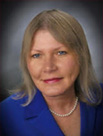A real estate company recently sent us and no doubt 1000’s of others (commonly called spam) an email trying to explain that in real estate “you get what you pay for” and basically no discount broker/agent would or could sell your home at reduced fee. The timing of the email was excellent as yesterday when I saw this I also saw a piece Mary and Lyle the co-founders of our company Assist-2-Sell wrote about their thoughts on the subject. I do hope you will spare some time to read it.
Please also check earlier posts for detailed analysis of zip code 92009 in Carlsbad. It may not be your zip code but it is an interesting story in numbers as where housee prices have been going for the last few years in this area.
You get what you pay for By Mary LaMeres & Lyle Martin
In a recent guest column in REM (November 2010), broker Ari Lahdekorpi wrote in praise of commission-based compensation. The author commented that
“any flat fee or a la carte type of formula removes some aspect of motivation or creative thinking on the part of the agent.”We are in favor of commission- based compensation models. We disagree that the commission must be percentage based. We believe the author’s opinion portrays real estate professionals unfairly. Most successful agents care more about bringing about a successful transaction where everyone wins, than the compensation. Successful agents are motivated by much more than compensation. As co-founders of the largest “discount” real estate company in North America, we’ve heard numerous attacks on compensation models that challenge the typical percentage commission model in use by most brokerages. None are particularly convincing and most are simply untrue.
For example: “You wouldn’t go to a discount doctor or attorney, would you?”
Really?
While we have tremendous respect for our fellow real estate professionals, we hardly think a comparison to professions that require years of education, testing and experience is a fair comparison. Let’s face it, this is not brain surgery! The requirements to obtain a real estate license pale by comparison. “You get what you pay for.” Do you? A prospective home seller calls a local brokerage to see about listing their home. Which agent do they get, and how much of a commission do they pay? Is it a top producing agent in the office who has sold lots of homes, is a skilled negotiator, knows the market and is working with active buyers? Or is it the brand new agent who just passed the exam and has no experience, no buyers and not a clue on how to value or market a home? Truth is, it could be either one or most likely someone in between and the commission is the same regardless of which agent they end up with. However, when it comes to the commission charged it is usually the same. Do sellers get what they pay for? Maybe, maybe not.
“If you don’t pay a ‘full commission, ’agents won’t sell your home.” There is no direct correlation to the amount of commission paid and the results in selling price. In their book Freakonomics, authors Levitt and Dubner conclude that having a real estate agent sell your home won’t necessarily result in a higher sale price. Flat fee versus percentages. Whether a seller pays a flat fee or percentage fee makes no difference. If we charge a flat fee of $12,000 to sell a $200,000 home, it is the same as charging a six per cent fee. How is it that simply charging a flat rate fee, as the author says, “removes some aspect of motivation or creative thinking on the part of the agent?” We understand the argument that making more money is motivating. We just don’t agree that one needs to make all of it from one seller. We know that by charging a competitive low flat fee we attract more sellers. More sellers, combined with effective marketing, skilled caring agents and a well-run business, will result not in less compensation, but greater overall compensation.
Our experience over the past 23 years with hundreds of offices throughout North America and thousands of home sales is that our agents typically sell more homes and make more money that the average agent. Yes they work hard and make less per sale, but they handle more business in one year than most agents get to do over a three-year period. You’ve heard the adage “if you want to get something done, give it to a busy person.” Who would you want performing your brain surgery? The doctor who does it once in awhile or frequently? We are in favor of commission- based compensation models. We disagree that the commission must be percentage-based. It is unfortunate that some real estate professionals attempt to discredit “non traditional” brokerages merely because of the lower fees they charge. Competition is good! Sellers are entitled to choices. Limited choices may have worked for Henry Ford in the early 1900s.
(“People can have the Model T in any color – so long as it’s black.”), but that’s not true today. There is room for other business models in the real estate industry to help home buyers and sellers. Consumers will vote with their pocket books and may the best solutions win.
Mary LaMeres and Lyle Martin are the co-founders of the real estate franchise Assist2Sell.

